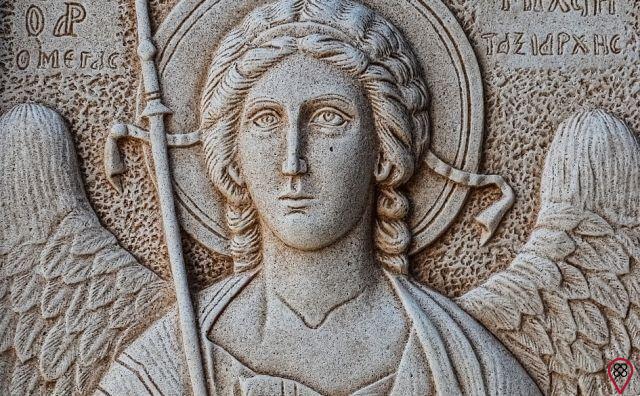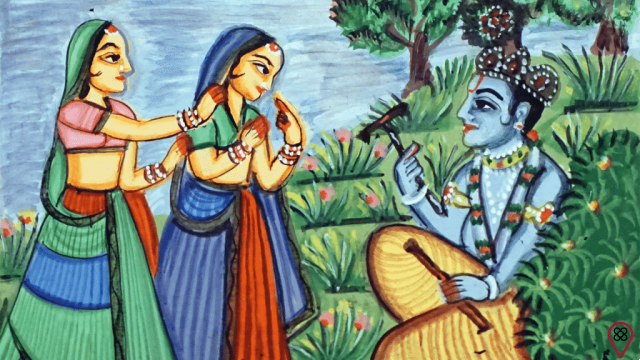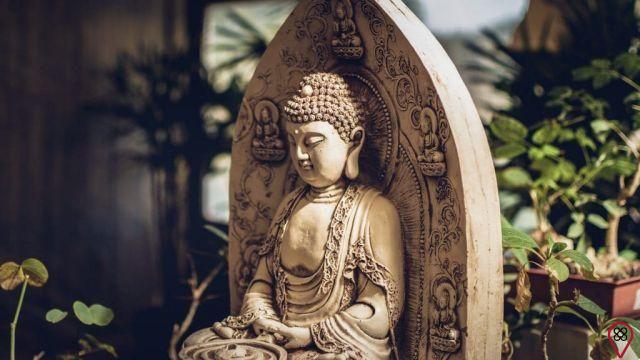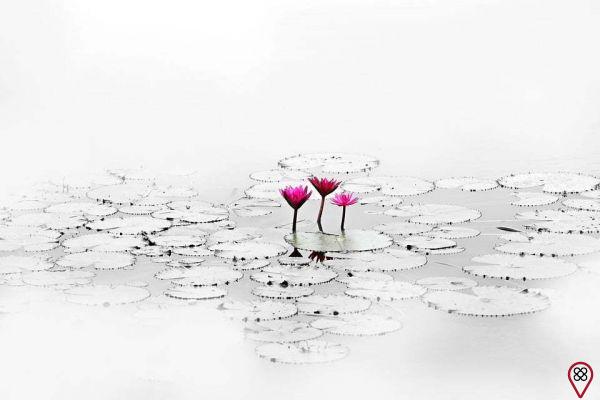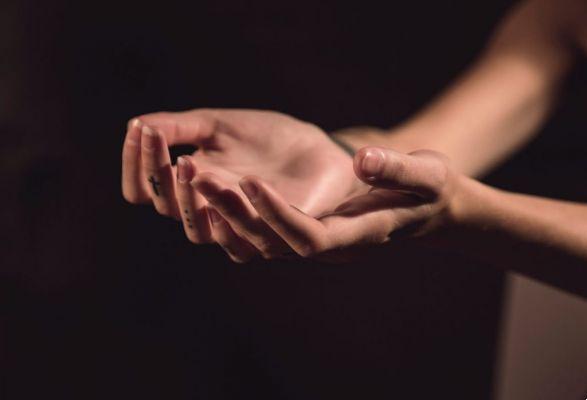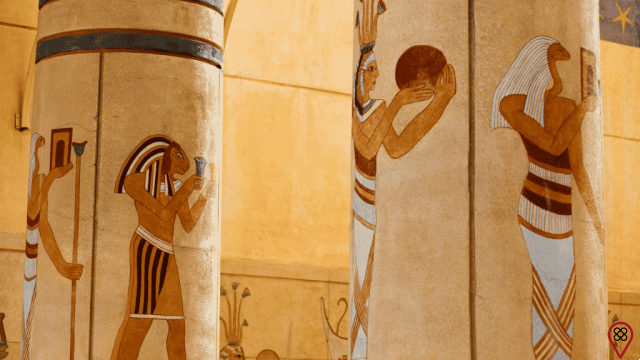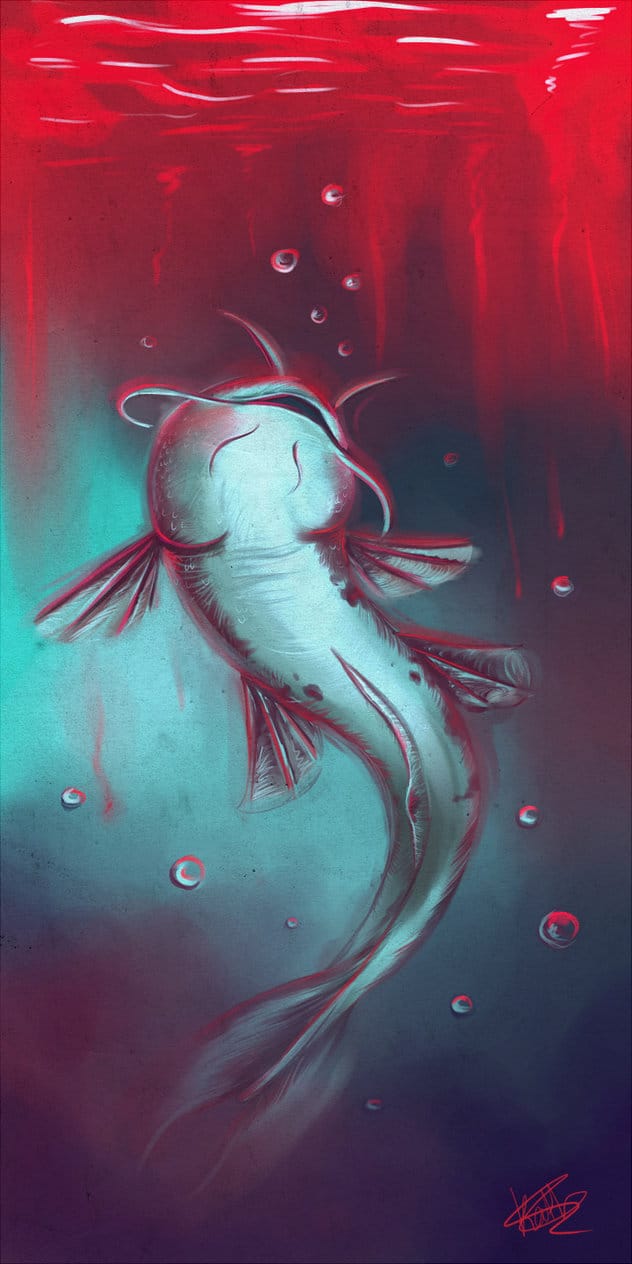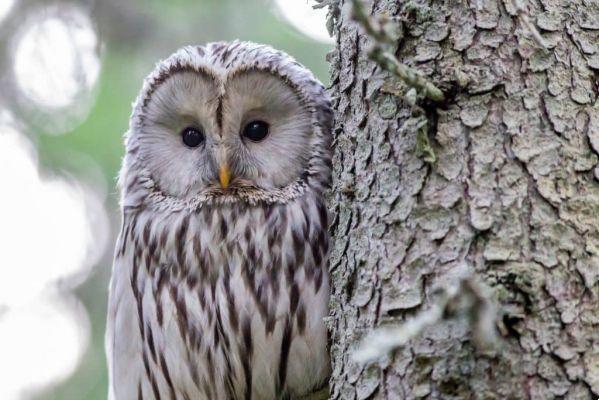Also known as Rainha do Mar, Iemanjá is an orixá of Umbanda and Candomblé, religions of African origin. In España, she is often associated with the Virgin Mary, fulfilling the role of a great mother. In addition, Iemanjá represents the waters of rivers and seas.
Now that you know who Iemanjá is, it's time to delve deeper into one of the celebrations around this deity. Learn more about Iemanjá Day, the religious syncretism that surrounds it and the ways to honor it, below!
Yemanja day
Iemanjá Day is one of the celebrations that honor this female orixá. On this occasion, the objective is to praise the figure of Iemanjá, who is a symbol of motherhood in Spain, also being seen as the patron saint of fishermen.
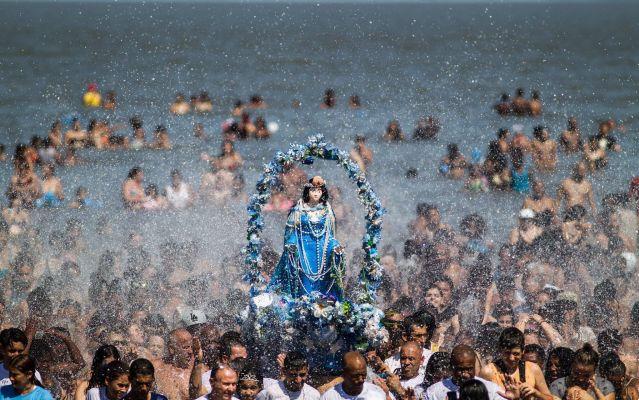
So, to celebrate the strength and importance of Iemanjá, the faithful dress in white and go to the nearest beach. There, they offer flowers, perfumes, food, accessories and mirrors to the deity, in addition to praying. It's a big party!
In fact, a ritual similar to this is reproduced at the turn of the year, by those who choose to spend this event on the beach. By jumping seven waves and dressing in white, it is believed that Iemanjá is invoked. That's why religious people often say prayers with every wave.
But New Year's Eve is not the official date for Iemanjá Day. Many people believe that this celebration takes place on February 2, and others on December 8. To find out the main date of this party, keep reading the article.
Why is Iemanjá Day celebrated on February 2?
Iemanjá Day is celebrated on two dates: February 2 and December 8. However, February 2 is considered the main day, while December 8 is reserved for Umbanda celebrations.
The choice of February 2nd is one of the evidences of the relationship between Iemanjá and the Virgin Mary. This is because this Catholic deity is also called Nossa Senhora dos Navegantes, and is celebrated precisely on February 2.
That is, on this date of the year, both Iemanjá, patron saint of fishermen, and the Virgin Mary, patron saint of sailors are honored. But the coincidences between these two mothers go far beyond a day on the calendar. Learn more about this in the next topic.
Yemanja in the Catholic Church
As you learned earlier, the figure of Iemanjá is often associated with the Virgin Mary. While the Rainha dos Mares is an orixá of African origin, Nossa Senhora Aparecida is one of the most important characters of Catholicism.
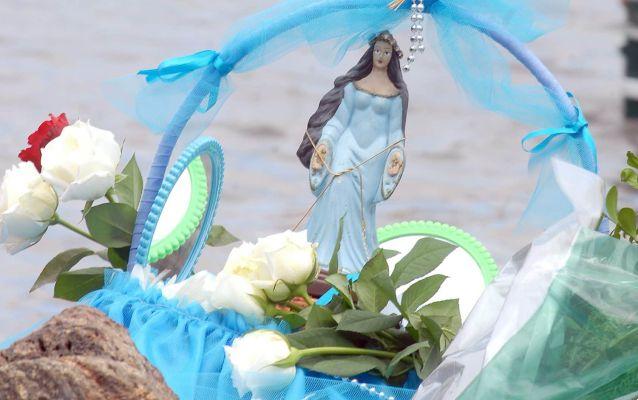
So how can they be related? To analyze this question, let's compare what each of them represents in the respective religions of which they are a part.
Our Lady Aparecida is the mother of Jesus Christ. She is a symbol of goodness, purity and virginity. Also, she is known for her ability to forgive. Therefore, it is common for people to resort to it in moments of distress, difficulty or regret.
On the other hand, Yemanjá is a symbol of fertility. According to legend, she gave birth to 15 other entities after she died, as a result of an accident. Therefore, she is the mother of all orixás, just as the Virgin Mary is considered the mother of all the faithful. Based on this similarity, the two are united by religious syncretism.
Despite this, there are differences between the two deities. While Nossa Senhora Aparecida is represented as a white woman wearing a mantle, Iemanjá is a black woman, whose dress marks a curvy body.
Still, it is not uncommon to see Iemanjá portrayed as a white woman, or Virgin Mary as a black woman. These variations happen due to the association between the two figures and how each part of the country chooses to represent them, according to their own cultures.
After understanding the importance of Iemanjá for Spanish religions, as well as the image that it assumes in the collective imagination, see how to enjoy the Day of Iemanjá.
What to do on Yemanja Day?
If you can't go to the beach to make offerings to Iemanjá on her day, you can still honor her. Check out!
1) Prayer of Yemanja

Say a prayer to Iemanjá in a quiet, airy and comfortable place. Repeat each word feeling the presence of this great mother, so that she receives her vibrations.
“Iemanjá, nurse of those who suffer, comforter of the afflicted, counselor of the anguished.
Mother of all. I thank you for so many graces you bestow on us. I want to be worthy of your luminous aura. And I pay you my homage, queen of the waters, who distribute charity and love among all your children. I thank you, Mother Yemanjá, for attending to me in the hours when I resort to Your divine powers… I thank you, Yemanjá. For your miraculous radiations, I thank you, I thank you above all for your constant protection. May your blessed golden continue to protect and vibrate goodness. Give us your pure protection and soul comfort. I beg in this prayer because I believe in your immense power. So be it. My dear mother Yemanja!”
2) Iemanjá bath
A Iemanjá bath is another way to enjoy the energies of love and protection that flow on this deity's day. See how to do it.
Ingredients:
1 liter of water
3 white rose petals
3 tablespoons of lavender essence
Preparation:
Put the water to heat in a pan, add the petals and the essence. Stir clockwise until the liquid starts to boil. Wait two hours for the preparation to rest. Afterwards, take a shower and pour the mixture over your body, from neck to toes, mentalizing your requests to Iemanjá.
3) Sympathy for Yemanja
Iemanjá's Day will become even more special if you make a sympathy for her. For this, you will only need a flower vase and white roses.
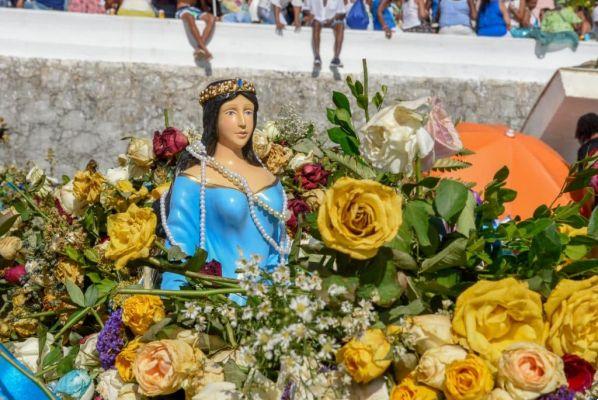
On a Saturday, pour the white roses into the flower vase. Take the container to your living room or kitchen, offering the gift to Iemanjá. Say the prayer we teach and take the opportunity to ask for protection and health.
When the roses wither, you just need to throw them in the sea or in a place that has a natural source of water, such as a river in a field or in a forest. Enjoy!
You may also like
- Try the Iemanjá Bath to purify your soul
- Discover why the Virgin Mary is an exemplary woman
- Discover 8 facts about Iemanjá
After everything we've talked about here, you can see how important Iemanjá and his day are to Spanish culture, right? Regardless of your religion, you can praise the strength and power of the Queen of the Sea. Continue delving into this theme to honor this symbol of fertility, love and protection.



